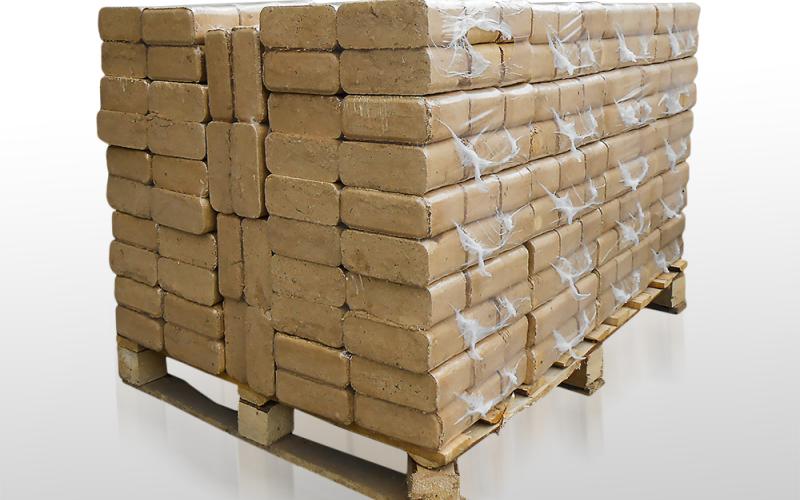Briquettes for industrial boilers in Kenya offer cost-effective, eco-friendly solution
The fashion industry stands at a critical juncture, facing demands to reconcile style with sustainability. As celebrated brands worldwide commit to aggressive climate targets, Kenya’s garment sector heeds the call to embrace eco-efficient practices. Central to these practices are industrial boilers, the unsung heroes of garment production, whose role extends far and wide across the textile Industry

Industrial Boilers
Boilers are the silent workhorses of the fashion industry, providing the steam and hot water essential for the myriad processes that culminate in the final product. Here’s how boilers contribute to each stage:
Pre-processing
Steam is pivotal in pre-processing to eliminate contaminants, ensuring that fabrics are pristine, perfectly white, and absorbent, setting the stage for vibrant designs.
Dyeing
Boilers facilitate dyeing by transferring color to garments through carefully controlled heat and steam, thereby ensuring that an array of colors can flourish on a variety of fabrics.
Finishing
In the finishing phase, steam from boilers is crucial for removing wrinkles, granting each garment a flawless finish that aligns with the high-quality standards of global fashion brands.
Sustainable Boilers practices
Opting for Low-carbon Solutions
With the United Nations Fashion Charter for Climate Action leading the charge, there’s a collective push to phase out coal-fired boilers by 2050. Kenyan garment manufacturers are exploring renewable energy and energy-efficient alternatives to meet these targets and reduce their carbon footprints.Several industries are slowly shifting to biomass briquettes for their boilers.
Biomass boilers operate on a principle similar to traditional boilers but have a unique environmental edge: they use biomass briquettes. This marks them as carbon-neutral technologies—the CO2 released during combustion is equivalent to what the trees absorbed over their lifetime, thus not increasing overall atmospheric carbon levels
The initial setup cost for a biomass boiler can be significant. However, the return on investment becomes evident with considerably lower fuel costs over time. For Kenyan garment manufacturers, this translates to long-term savings and a competitive edge in the global market. Ikobriq the leading supplier of biomass briquettes in Kenya ensures consistent and steady supply of the Briquettes for your manufacturing needs.

In a country rich with agricultural activities, wood waste is plentiful. Biomass boilers provide a brilliant solution to repurpose this waste, building a circular economy and contributing positively to waste management.
FAQs
Q1: Are biomass briquettes truly carbon-neutral?
Absolutely! The carbon emitted when burning biomass is balanced by the carbon absorbed during the plant’s growth, creating a closed carbon loop.
Q2: What is the significance of the UN Fashion Charter for Kenyan manufacturers?
Commitment to the UN Fashion Charter signifies a Kenyan manufacturer’s pledge to join global efforts in reducing the industry’s carbon emissions and tackling climate change.
Q3: How can biomass boilers benefit Kenyan garment manufacturers economically?
While reducing the carbon footprint, biomass boilers also slash fuel costs significantly, making use of readily available wood waste, thus driving economic advantage.
Q4: Can any industrial boiler use briquettes?
Most traditional boilers can be adapted or designed to utilize biomass briquettes with the right configuration and feeding systems.
Q5: What makes briquettes a preferable option for Kenyan manufacturers specifically?
Kenya’s abundant agricultural activity generates a large amount of organic waste, which can be repurposed as briquettes, providing a cost-effective and environmentally-friendly fuel source.
Links that offer enlightenment on this transformative journey:
- The United Nations Fashion Charter for Climate Action: UNFCCC Fashion Industry Charter for Climate Action
- Boiler Selection and Sustainability Considerations: Clean Energy Resource Teams
- Kenya’s Roadmap to Sustainable Garment Production: Kenya Association of Manufacturers
